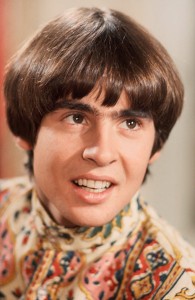The popular music world suffered two significant tragedies recently, with the untimely death of singer Whitney Houston on Feb. 11, followed by the death of Monkees singer Davy Jones yesterday. In the days before ubiquitous facebook and twitter access, most people probably would have heard the sad news first on their radios, along with tributes and blocks of the artists’ most popular songs. Today it’s not just the internet that interferes, but commercial music stations’ heavily reliance on automation and voice tracking which means that there often isn’t a live DJ in the building to break in with the news.
I was an enormous Monkees fan as a kid, first exposed to their show during afternoon reruns on a local UHF station. Then I was reintroduced to the band in high school when MTV picked up and reran the series in the mid-80s, eventually prompting a reunion tour featuring three-quarters of the band, minus Mike Nesmith. As I learned more music history I gained more respect for the band and singer Davy Jones, first in learning how so many great songwriters contributed to their first albums. Then I realized how the four Monkees were talented musicians in their own right, struggling with their producers and management to write their own songs and play their own instruments. I still occasionally play my old Monkees LPs, and was saddened to hear of Jones’ passing.
Chicago media reporter Robert Feder posted an assessment of radio’s response to Jones’ death to his blog last night. He notes that there was relatively rapid response to the news on the Chicago airwaves, which he partially attributes to the fact that the new broke on a weekday afternoon, when most big market stations are well staffed. By comparison, news of Houston’s death broke on a Saturday night, when very few commercial stations even have live staff in the building, never mind on air. Many commentators harshly criticized commercial radio for missing the ball, like industry veteran Jerry Del Colliano whom Feder quotes as writing, “Radio is so downsized that it has become insensitive to what is happening in the real world — even the real world of music that they should care about.”
Feder notes that Chicago’s two major oldies stations reported the news of Jones’ passing swiftly, with WLS-FM DJ Dick Bondi breaking into the syndicated Scott Shannon afternoon program to inform listeners and play “Daydream Believer” in tribute.
When Michael Jackson died in 2009 my fellow Radio Survivor Jennifer Waits covered how commercial radio put aside canned programming to pay on air tribute to the King of Pop.
While we may hear the news on twitter–that’s how I learned about Davy Jones–that medium doesn’t deliver the same experience as thousands of listeners simultaneously remembering a beloved artist while hearing their favorite songs on the radio.



